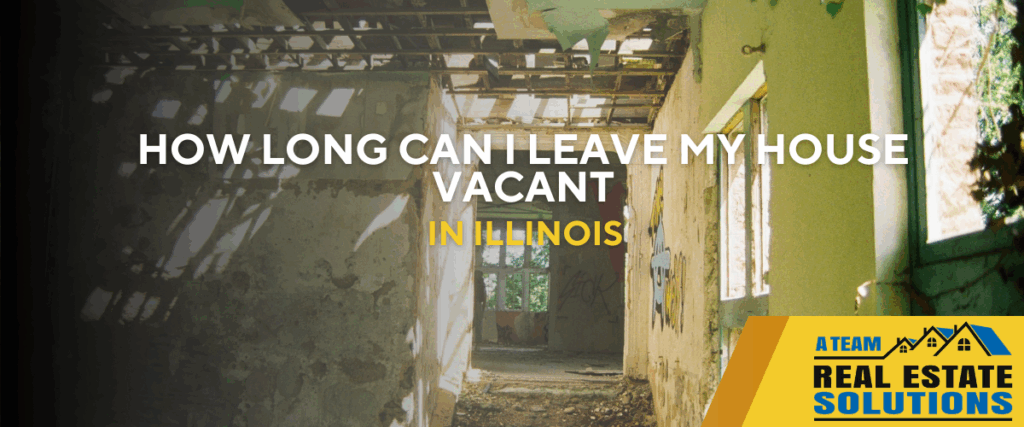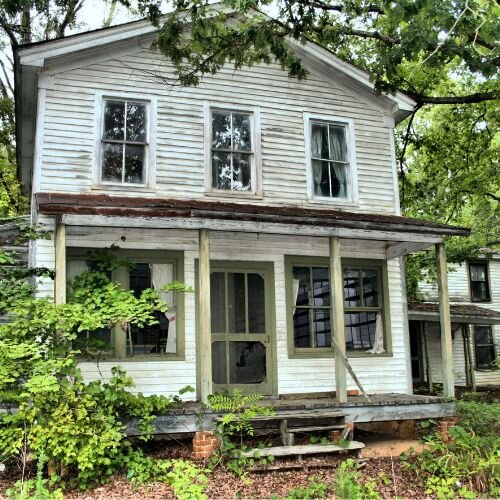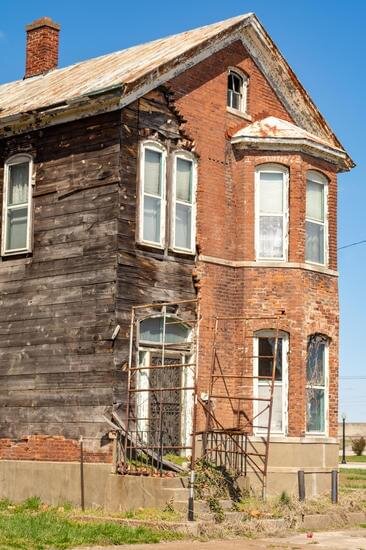
Understanding Illinois Property Laws for Vacant Homes
Property owners who leave their homes vacant must know Illinois property laws. State and municipal rules dictate how long a home can be empty before a penalty. Illinois law requires unoccupied property owners to prevent nuisances and risks. This involves property security, cleanliness, and health and safety compliance.
Local governments can also require unoccupied property registration. These regulations may result in fines or other legal action. Many insurers limit coverage for empty houses, so homeowners should know how long vacancies affect their insurance. Illinois property owners must understand state and municipal unoccupied property laws to avoid problems and comply with the law.
Legal Implications of Leaving a House Vacant in Illinois
Leaving a house vacant in Illinois can have significant legal implications for property owners. In Illinois, municipal regulations and state laws impose specific responsibilities on homeowners to maintain vacant properties. Failure to comply with these regulations may result in fines or other legal actions. For instance, many local ordinances require owners of unoccupied homes to register their properties with the city or county, often mandating periodic inspections to ensure the home remains secure and free from hazards.
Property maintenance standards must also be adhered to, including keeping the exterior neat and preventing issues like overgrown lawns or accumulated debris that could attract pests or vandalism. Homeowners’ insurance policies may also stipulate certain conditions regarding how long a property can be left unoccupied before coverage is affected, potentially leaving owners vulnerable to financial risk if incidents occur while the home is empty. Understanding these legal obligations is crucial for avoiding penalties and ensuring compliance with Illinois’ vacant home regulations.
Insurance Considerations for Vacant Properties in Illinois
Unoccupied homes affect Illinois’s vacant property insurance. Homeowners’ insurance typically excludes vacant homes after 30–60 days.
Illinois insurers may need an unoccupied house insurance endorsement or policy to continue coverage. Vandalism, theft, and undetected maintenance issues are typical in empty houses; thus, this insurance covers them.
Property owners should notify their insurer of the vacancy and inquire about the Illinois policy to ensure adequate coverage. Regular inspections and security help minimize Illinois’ vacant property rates and liabilities. Understanding these insurance difficulties is crucial for unoccupied homeowners.
Best Practices for Securing a Vacant Home in Illinois

Illinois vacant house security demands many practices to keep it safe and comply with local laws. Regular inspections detect vandalism and speed up repairs and maintenance. A reliable security system with cameras and motion detectors can deter intruders and give you peace of mind. Maintaining the yard and removing trash hides the vacant property.
Notifying local authorities of unoccupied property may increase surveillance. Defending against theft and natural disasters involves insurance. Install nighttime light timers to simulate occupancy. Encourage neighbors to watch your property for security and community awareness. These approaches help Illinois homeowners protect abandoned homes and comply.
Impact of Vacancy on Property Value in Illinois
Illinois real estate investors and homeowners worry about the impact of vacancies on value. Unoccupied homes may have issues that affect their value.
Illinois vacant properties are more susceptible to vandalism, theft, and degeneration due to neglect. Local laws may fine or restrict unoccupied homes, lowering their value.
Vacant homes reduce neighborhood safety and appeal. The perceived neglect of long-term vacancies may deter purchasers and investors, making it harder to sell the property reasonably. Thus, understanding Illinois’s vacant home regulations is crucial for preventing these damages and preserving property value. A Team Real Estate Solutions Buys Houses in all Situations. Contact us for more Details.
How to Maintain Utilities in a Vacant House in Illinois
Illinois abandoned houses must maintain utilities to avoid damage and meet local codes. Even when a home is empty, electricity, water, and gas must be kept to avoid frozen pipes and electrical system failures. Wintertime heating on low can prevent pipes from freezing and breaking, requiring costly repairs. Monitoring water leaks and drips can help preserve plumbing infrastructure.
Smart meters or remote systems can detect anomalous utility usage that needs maintenance. They can also warn utility companies of the property’s unoccupied status so they can warn you of any sudden consumption fluctuations that may indicate problems. These methods also comply with Illinois’ vacant property rules by maintaining the residence and preventing it from becoming unsafe or unsightly.
Seasonal Maintenance Tips for Vacant Homes in Illinois
Illinois empty properties must be meticulously maintained, especially during changing seasons, to avoid damage and comply with municipal ordinances. In winter, homeowners should inspect heating systems to avoid frozen pipes. Illinois’ variable weather can cause roof and gutter deterioration, so inspect them often. Empty dwellings benefit from window and door security, which saves energy and deters burglars.
Lawn care is essential because overgrown lawns attract pests and convey vacancy. Homeowners near trees can avoid storm damage by cutting branches. Keeping the exterior paint and siding helps prevent moisture intrusion, a major issue in Illinois’ humid summers. Security and smoke detector checks assure safety even when no one is home. Protecting your investment and following Illinois vacant home rules requires seasonal maintenance.
Finding Reliable Property Management Services in Illinois
Illinois homeowners must find reliable property management services to comply with vacant home laws. These experts can maintain your unoccupied property and ensure adherence to state and local regulations. Property managers know Illinois laws, which limit how long a home can be vacant without penalties. They safeguard your investment with regular inspections, maintenance coordination, and security checks.
In many cases, an unsolicited offer may come because of the property’s vacancy, as investors and buyers often target unoccupied homes for quick purchases. Using a reputable property management company reduces vacancy risks like vandalism and deterioration and ensures compliance with all regulations. This proactive approach preserves property value and reassures owners that regulatory experts are in charge.
Preventing Vandalism and Theft in Vacant Illinois Properties
Vacant Illinois properties need proactive security and maintenance to prevent vandalism and theft. Unoccupied homes attracting attention can cause damage or unauthorized entry. Installing security solutions like surveillance cameras and vacant property alarms reduces these dangers. Regular inspections by property management or trusted individuals can also reduce crime by making the home visible.
Maintaining the home’s exterior—mowing the lawn and collecting mail—can prevent vandals and thieves from seeing it as abandoned. Collaborating with local law enforcement for periodic patrols can also enhance security measures. Understanding local regulations on vacancy periods in Illinois helps ensure compliance while keeping properties safe during times of unoccupation.
Understanding Liability Issues with Vacant Houses in Illinois
In Illinois, homeowners are responsible for maintaining their vacant properties to prevent these risks from escalating into liabilities. Insurance coverage plays a critical role, but standard homeowner’s policies often do not protect vacant homes completely. Therefore, securing specialized vacant property insurance can mitigate potential financial losses from fires or water damage. Additionally, owners must comply with local ordinances requiring regular inspections and maintenance to ensure safety and prevent nuisances. Failure to adhere to these regulations can result in fines or legal action from municipal authorities. Ensuring that the property is well-maintained and properly secured reduces liability and helps protect the investment in the long term.
Preparing an Exit Strategy: Selling or Renting Out Your Vacant Home
When exiting an Illinois unoccupied home, consider selling rather than renting. Selling your home might alleviate financial stress and worry about leaving it empty. However, this alternative includes studying the local real estate market, calculating home prices, and maybe investing in repairs or renovations to entice possible buyers. However, renting out your vacant property may create money and increase value. You can sell your House to A Team Real Estate Solutions, which offers the best Cash Offer for your House in Chicago, Cicero, and many other areas in Illinois.
Successfully renting your house requires knowledge of Illinois landlord-tenant legislation and compliance with rental property rules. Get permits, set competitive rental rates based on market analysis, and screen tenants to reduce risks. Both strategies require careful planning, long-term financial goals, and state vacant home regulations.
The Role of Homeowner Associations and Neighborhood Watch Programs
Homeowner Associations (HOAs) and Neighborhood Watch programs are critical in managing vacant home regulations in Illinois. HOAs often establish specific guidelines that property owners must follow to ensure that vacant homes do not negatively impact the community. These associations may impose fines or take legal action if homeowners fail to maintain their unoccupied properties according to the established standards. In addition, Neighborhood Watch programs contribute by monitoring vacant homes for signs of neglect, vandalism, or unauthorized occupancy, thereby enhancing community safety and security.
By collaborating with local authorities, these groups help enforce compliance with city ordinances regarding property upkeep and security measures for vacant homes. This cooperative effort between HOAs and Neighborhood Watch programs is essential in preserving neighborhood aesthetics and preventing potential crime associated with abandoned properties. Their active involvement ensures that even unoccupied homes remain integral to a well-maintained and secure community environment in Illinois.
Financial Planning for Long-term Property Vacancy
When planning for long-term property vacancy in Illinois, understanding the financial implications is crucial for homeowners. Owners must account for ongoing costs such as property taxes, utility bills, and maintenance expenses, even when a home is unoccupied. Insurance is another critical factor; standard homeowner policies may not cover properties left vacant beyond a specific period, necessitating specialized vacant home insurance to mitigate risks like vandalism or weather damage. Additionally, owners should consider the potential impact of local regulations that could impose fines or require registration for prolonged vacancies. Budgeting for these expenses ensures that property values are preserved and compliance with Illinois regulations is maintained. Strategic financial planning can help homeowners avoid unexpected costs and protect their investment during extended vacancy periods.
Renovation Ideas to Boost the Appeal of a Vacant Home
Renovating an Illinois vacant home can boost its marketability and appeal to buyers and renters. Since prospective tenants look first at the kitchen and bathrooms, updating them is a good renovation idea. Modernizing fixtures, installing energy-efficient appliances, and adding modern design elements can freshen a space. Another way to boost curb appeal is to plant flowers, trim bushes, and maintain lawns.
A fresh coat of neutral paint inside can brighten and expand spaces. All HVAC, plumbing, and electrical systems must be working to avoid problems during inspections or appraisals. Roof repairs and foundation stabilization can reassure buyers of the property’s stability. These renovations increase a home’s aesthetic value and desirability in the competitive Illinois real estate market.
Environmental Concerns for Unoccupied Properties
Illinois property owners must address environmental issues when a property is vacant. Vacant homes can degrade quickly, as they are more susceptible to mold growth due to unregulated moisture and humidity levels. Without regular upkeep, overgrown vegetation and accumulation of debris can also arise, inviting pests such as rats and insects. These bugs pose health problems and inflict structural damage over time.
Additionally, empty buildings may have plumbing troubles if pipes freeze or burst during colder months, leading to water damage and severe floods. Property owners in Illinois must be aware of these concerns and ensure that abandoned homes are periodically examined and maintained to prevent environmental degradation and protect the integrity of their investment.
Tax Implications of Owning a Vacant House
Understanding the tax implications of owning a vacant house in Illinois is crucial. If mismanaged, vacant properties can increase financial obligations and penalties. Property taxes in Illinois are a significant concern for vacant homeowners, as local governments rely on them for revenue. Unoccupied homes may have different tax rates or assessments.
Some jurisdictions may even tax vacant properties more to reduce urban blight and encourage occupancy. Owners must also consider losing tax exemptions or reductions for primary residences, which usually require occupancy. Homeowners must know local ordinances and legislative changes that may affect vacant property taxes. Managing these aspects can reduce unexpected costs and ensure state and local compliance while the property is unoccupied.
Dealing with Squatters and Unauthorized Occupants
Illinois property owners must understand how to handle squatters and unauthorized occupants in vacant homes. Squatters living in vacant properties without permission can cause legal issues. Illinois property owners must follow particular processes to legally remove these individuals. First, they must serve an eviction notice, which is a key step in restoring control over their abandoned property.
If squatters refuse to leave, unlawful detainer lawsuits are needed. During this process, evidence must be gathered proving that the occupants are indeed unauthorized and have no legal right to remain on the premises.
Local law enforcement can help enforce court-granted eviction orders. To avoid such scenarios, homeowners should frequently assess vacant properties and secure them with security equipment or property management services. Understanding these regulations helps ensure property owners can swiftly address issues involving squatters while protecting their rights as homeowners under Illinois law.
Emergency Preparedness Measures for Uninhabited Residences
In Illinois, ensuring emergency preparedness for uninhabited residences is crucial to safeguarding your vacant property from potential hazards. Property owners should consider implementing security systems that include alarms and surveillance cameras to monitor the premises effectively. Regular maintenance checks are essential to prevent issues such as plumbing leaks or electrical malfunctions, which can go unnoticed in a vacant home. Maintaining a list of emergency contacts, including local authorities and trusted neighbors who can respond quickly if necessary is advisable.
Additionally, securing windows and doors with sturdy locks can deter break-ins, while installing smoke detectors and fire extinguishers helps mitigate fire risks. Properly winterizing your home by insulating pipes and sealing openings prevents damage from harsh weather conditions.
By taking these proactive precautions, you can preserve your investment and ensure compliance with municipal restrictions affecting Illinois’s unoccupied homes.
How Long Is Property Considered Abandoned in Illinois?

In Illinois, understanding the legislation surrounding vacant and abandoned homes is crucial for homeowners to prevent legal difficulties. A property in Illinois may be termed abandoned if it sits uninhabited for an extended period without any evident maintenance or activity. Typically, a residence can be considered abandoned after 30 days of continuous vacancy, although this term might vary depending on local legislation and individual circumstances. It is necessary for property owners to routinely inspect and maintain their homes to avoid them from being labeled abandoned by local authorities.
This involves ensuring the property does not exhibit symptoms of neglect, such as overgrown lawns, accumulated mail, or damaged windows. Homeowners should also familiarize themselves with municipal codes in their location to understand precise deadlines and acts that indicate abandonment. By being updated about these restrictions, property owners can take proactive actions to manage their abandoned homes properly and avoid penalties associated with abandonment in Illinois.
Can I Leave My House Vacant?
Certainly! Understanding Illinois’ vacant home restrictions is essential for homeowners considering keeping their property uninhabited. Local ordinances and homeowner association rules may limit how long you can leave your house vacant, but the state does not. Understanding these rules will help you avoid fines. Unmaintained empty properties can also suffer vandalism, squatters, and neglect. Secure the property, maintain insurance, and consider employing a property management firm to reduce these hazards. You can safeguard and comply with local rules for your vacant Illinois house by being educated and adopting preventive precautions.
How Long Until Property Is Considered Abandoned?
Illinois homeowners who leave their homes empty must know when a property is abandoned. If a property is vacant for a long time without signs of occupation or maintenance, Illinois law considers it abandoned. Local regulations differ, but a property is deemed abandoned if it is vacant and neglected for over six months. Overgrown lawns, mail, and utilities can indicate abandonment during this time.
Homeowners should be aware of these requirements to avoid legal complications and abandonment. Illinois unoccupied property owners can avoid abandonment and fines by maintaining and protecting their properties.
What Are the 5 Requirements for Adverse Possession in Illinois?
Illinois’s adverse possession law allows non-titleholders to claim land ownership under specific conditions. To comprehend adverse possession in Illinois’ vacant home regulations, familiarize yourself with the five basic requirements.
- First, the individual must physically use the property as an owner to own it.
- Second, their possession must be open and notorious, so everyone, including the legitimate owner, can see them.
- Third, the hostile owner must use and control the property without public access.
- Fourth, continuous for 20 years in Illinois is required by law. Use must be uninterrupted during this time.
- Finally, their possession should oppose the genuine owner’s interest, indicating unauthorized use.
These strict rules ensure that adverse possession claims are valid and deter opportunistic property acquisitions. Illinois homeowners concerned about keeping their houses empty and subject to adverse possession claims must understand these criteria.
| LANDLORDS AND TENANTS | LANDLORD AND TENANT | ABANDONED PROPERTY | UNCLAIMED PROPERTY | ATTORNEY | LAWYERS |
| LEASE | LEASE OR RENTAL AGREEMENT | LEASE AGREEMENT | SQUATTER’S RIGHTS | STATUTES | CITY OF CHICAGO |
| CHICAGO | RENTAL PROPERTY | ORGANIZATION | EVICTED | LIENS | INFORMATION |
| ZONING LAWS | OWNERSHIP RIGHTS | PRIVACY | LITIGATION | DOCUMENT | |
| BUILDING CODES |
![Leaving house vacant in [market_city] for how long](https://image-cdn.carrot.com/uploads/sites/48444/2025/06/Leaving-house-vacant-in-illinois-for-how-long.jpg)
